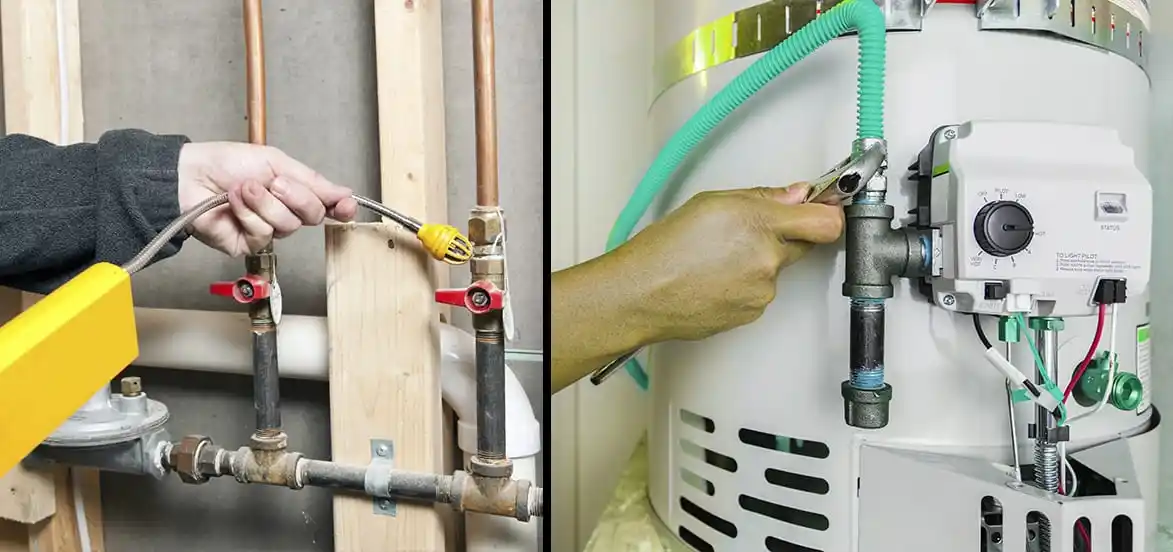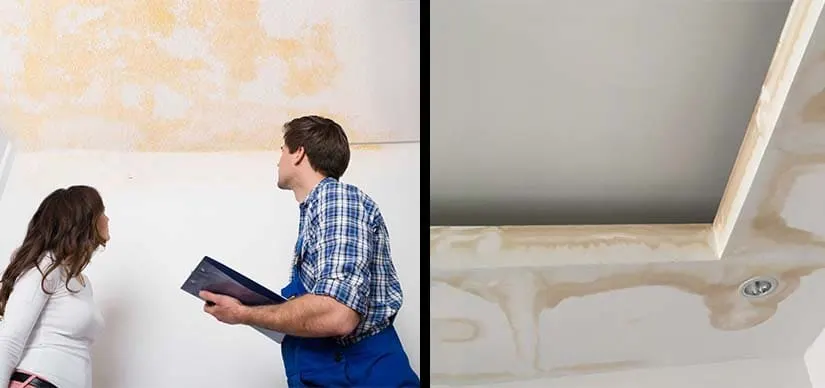How do I handle a gas leak in my water heater?
Views : 712

Gas water heaters are very safe and cost-effective, but like any other gas appliance, they are at risk. At the top of the list is a gas leak. The most common warning sign is the smell of rotten eggs in your home. Natural gas is odorless when exposed from the surface of the earth, but it is added by suppliers as a safety measure.
The strange smell of your home is not the most enjoyable experience. However, smelling rotten eggs can be dangerous. If you smell sulfuric acid or “rotten eggs” at home or at work, you may have a gas leak. When dealing with potential gas leaks, it is important to shut off the gas immediately, as odorous gas can cause injury or even death.
You’ve suspected a heater hot water leak, but do you know how to identify it? Determining if there is such a gas leak usually requires skills and expertise from a water heater repair company in San Diego, but there are some simple techniques you can use to do the work yourself.
Tips To Handle Gas Leak In Your Water Heater
1. Install A Gas Detector:
One of the most common and practical techniques is to install a portable gas leak detector at home. Not only is this technique simple, but it’s also very safe. Thus, you can rest assured that if a water heater leaks, the detector will detect it immediately. You can purchase such effective device at local hardware stores. It is available in a variety of sizes and prices. When purchasing a detector, it is vital to read the instructions carefully to ensure that you get accurate as well as safe and reliable test results. If unsure, you can consult the water heater installation professionals in San Diego to make the right decision.
2. Try To Identify A Hissing Sound:
If you don’t have a gas leak detector at home, take a moment to stand quietly next to the water heater and hear the swoosh. If you hear a swoosh, it indicates that the water heater has a hot water gas leak that requires attention. If you experience hiss, take the time to seek help from a specialist rather than handling the problem yourself. Everyone knows how dangerous all kinds of gas leaks are. Therefore, EZ Plumbing USA experts strongly recommend that you consult with a professional at such times.
3. Clear The Path To The Water Dispenser:
Make sure you have access to the gas lines and valves. If anything blocks the way, clear it. So, water heater installation experts in San Diego can smoothly perform the needful.
4. Find The Gas Line That Supplies The Gas To The Water Heater:
Keep in mind that the plumbing can be above, beside, or behind the water heater. So, accurately find the leaking gas line with the assistance of water heater repair professionals in San Diego.
5. Turn Off The Gas:
Once you find the pipeline, turn it counterclockwise until the handle stops. You can see that the handle is off as it crosses the path of the pipe.
Replace The Flexible Gas Line:
If a gas leak is found from the water heater, it is most likely due to the flexible gas line to the water heater. Replacing is not technically difficult, but working with gas pipes is dangerous, so experts strongly recommend hiring a trained plumber to perform the repair. If you want to replace the lines yourself, here are some guidelines:
- Make sure the gas valve to the water heater is closed.
- Loosen the screw connection with the appropriate tool (flare nut wrench) and remove the flexible line.
- Replace with a new line of the same length and check the natural gas rating.
- Tighten the fitting until it fits snugly (do not overtighten).
- Replace the gas in the water heater and check for leaks.
Ventilation:
Open all windows and doors in the house to let the remaining gas escape. It will help to avoid congestion due to the presence of gas indoors.
How Dangerous Is A Gas Leak From Your Water Heater?
- No one really knows. The gas contains a high proportion of carbon monoxide. Excessive exposure to this carbon monoxide gas can be dangerous to the body.
Symptoms of gas leaks from water dispensers are dangerous and can lead to the following results:
- Fatigue, headaches, dizziness, and even lightheadedness.
- The constant ringing of the ears with the constant stimulation of the eyes.
- Nosebleeds can occur when the situation gets worse.
- Chest pain and difficulty breathing quickly.
- As a side effect of gas leaks from the water heater, the skin begins to whiten in a short time.
- Loss of appetite and severe nausea.
There are also many other symptoms that have proven to be extremely dangerous, related to gas leaks from water heaters. In short, it can put your life in risk. Thus, you have to make sure there are no gas leaks from the water heater. These minor symptoms and reasons can turn serious, so it is crucial to fix the issue immediately.
Don’t Ignore Your Water Heater:
Avoid Gas Leaks:
Even with regular maintenance, water heaters can cause some problems over the years. The system may rust, parts may wear, or the entire system may fail. Water heaters are designed to last only about 12 years on average, depending on maintenance and repair.
Here are some essential maintenance tips you can take to prevent carbon monoxide leaks:
- Flushing Once A Year: Flush all water from the tank to remove sediment.
- Inspection: You should schedule a thorough inspection by a plumbing expert once a year. In this annual check, replace the anode rod every few years.
- Ventilation: The water heater has adequate ventilation to prevent gas and carbon monoxide from accumulating in the room.
- Detector: Consider installing a carbon monoxide detector near the water heater as an early warning of leaks. However, if you suspect a carbon monoxide leak from your water heater, evacuate your family immediately and contact an expert in San Diego to repair the water heater. You can rely on EZ Plumbing USA experts for carbon monoxide testing and water heater repairs in San Diego. Our experienced and certified technicians will be at your home within 60 minutes.
Safety Tips For Water Heaters:
Conclusion:
Gas leaks from water heaters are not a minor issue, and you need to act as soon as possible. You should carefully check your water heater to ensure there are no gas leaks. As mentioned above, gas leaks from water heaters can have malefic consequences. You should be fully aware that the horrifying symptoms and results of a gas leak from a water heater can occur, as it can be fatal quickly. You have to stop as soon as possible to make sure everything is working properly and correctly.
Gas leaks, particularly those involving hot water, should never be taken lightly. A leak is usually minor. But in certain situations, a gas leak can be highly serious and pose a severe threat to your house and family. As a result, if you notice or suspect a hot water gas leak, you must act quickly. Always err on the side of caution and contact the highly qualified water heater repair technician in San Diego for assistance with both the gas leak detection and the necessary repairs to your water heater.

.jpg)

.jpg)
